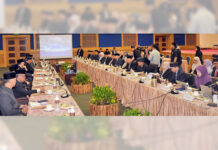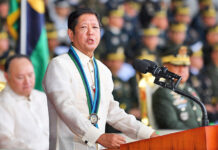SEOUL (AFP) – Fleeing civil war in his home country Cameroon, Fossi Wandji found himself stuck in Incheon airport terminal for a year when his attempt at obtaining asylum from South Korea was rejected.
But the Asian nation is now counting on him to boost its chances at the Homeless World Cup tournament – something that could in turn bolster his bid at winning the right to stay on in South Korea.
Wandji, 27, is playing on a squad with seven other South Korean players in the tournament, which showcases national teams made up of young, unhoused people, refugees and those who have battled substance abuse.
The tournament, newly backed by global football body FIFA, is hosted by Asia for the first time this year since it began in 2003.
The event bills itself as helping participants change their lives for the better through football and has already sparked a feel-good documentary starring Bill Nighy, plus a 2023 Korean movie called Dream.
But Wandji’s experience is also reminiscent of another movie, Tom Hanks’ The Terminal, in which the protagonist was forced to live in an airport as he was denied entry to the United States but unable to return to his own country because of a military coup.
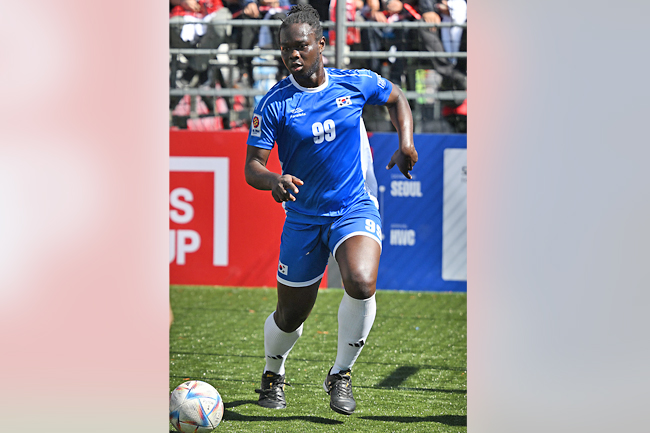
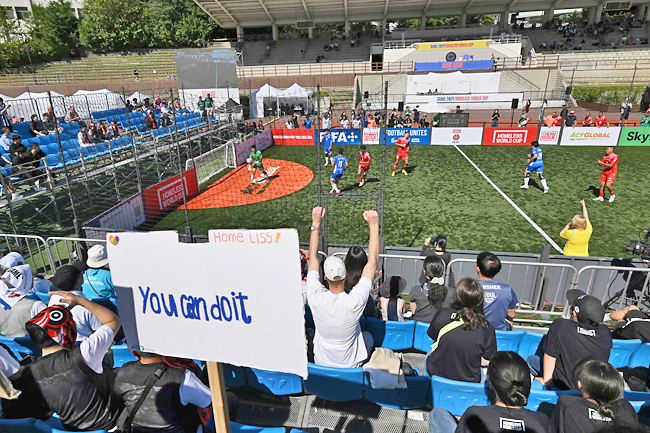
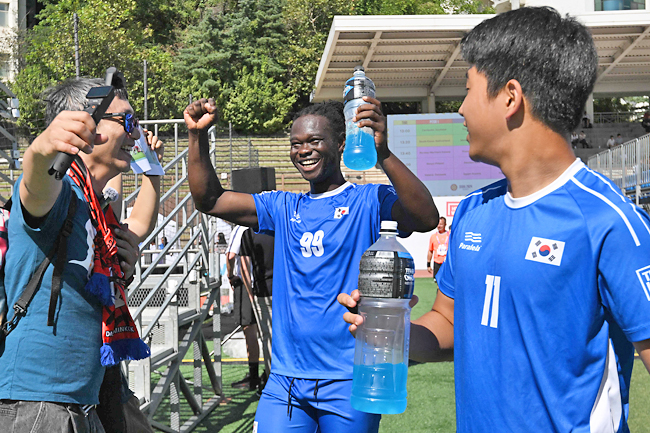
“I left Cameroon because Cameroon had a war,” Wandji told AFP on the sidelines of the football field at Seoul’s Hanyang University.
While he was trying to flee, a contact who was helping him suggested South Korea could be a good place to seek refuge. So, in October 2022, Wandji boarded a plane to Seoul.
But South Korea’s Justice Ministry immediately rejected his claim on his arrival at the airport, blocking him from leaving the terminal while he sought a reversal of the decision.
While he waited, the Terminal 2 transit area became his temporary home. “I had some place where you can put a blanket,” he said, describing how he shared the space with around 10 other people, including some other asylum seekers.
Photos published by South Korean media Hankyoreh showed Wandji making a makeshift bed with a blanket, using boxes of noodles to separate himself from other asylum seekers sleeping nearby.
Despite signing international conventions on refugees, South Korea accepts only a tiny number of asylum seekers each year.
It has received more than 116,400 asylum applications over the past 30 years but approved 1,507 – a 1.29 per cent acceptance rate, according to Justice Ministry data.
A South Korean court has overturned the Justice Ministry’s rejection of Wandji’s claim, allowing him to leave the airport last year with a stay permit while his asylum application is reexamined.
In May, Wandji applied to join the South Korean Homeless World Cup team and made the squad two months later.
His contribution has been crucial, according to teammate Hong Seung-woo.
“Without his defence, we would have conceded so many goals,” Hong said.
Wandji has scored one goal in the team’s first five matches.
This year’s edition features 52 teams from 38 countries worldwide, according to local organisers and it is the first since FIFA signed an agreement to partner with the Homeless World Cup Foundation in organising it.
Under the agreement, FIFA are providing medals and trophies, and broadcasting the event which runs until September 28, on their FIFA+ streaming platform free of charge.
“I don’t know how to explain but I feel like this is my country,” Wandji said of South Korea.





